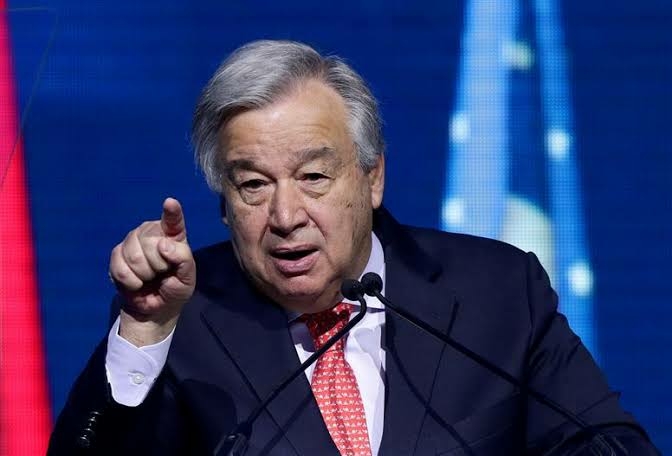According to UN Secretary-General António Guterres, the only way out of the COVID-19 pandemic and unequal vaccine distribution is through a global vaccination plan.
On Tuesday, Guterres addressed a meeting of Foreign Ministers from the Group of 77 developing countries (G77) and China at the United Nations headquarters in New York.
According to him, the pandemic is still wreaking havoc on both developed and developing countries.
He stated that the United Nations supported the World Health Organization’s vaccination strategy (WHO).
The vaccination strategy aims to get vaccines into the hands of 40% of people in all countries by the end of 2021, and 70% by the middle of 2022.
“Everyone, everywhere, must have access to COVID-19 vaccinations, diagnostics, and treatment,” the secretary-general stated, requesting funding for the ACT-accelerator and the COVAX facility.
Guterres also warned that while the global economy is expected to grow by 5.9 percent in 2021, the pace of recovery will be extremely uneven.
This is not surprising to him, given that developed economies are investing 28% of their GDP in recovery, middle-income countries are investing 6.5%, and the least developed countries are investing only 1.8%.
The International Monetary Fund (IMF) predicts that cumulative economic growth per capita in Sub-Saharan Africa would be 75% lower than the rest of the globe during the next five years.
“As growth rates are expected to slow in 2022, this dangerous divergence threatens to widen.” Rising inflation may also have a negative impact on the cost of borrowing and debt servicing,” he cautioned.
The UN Secretary-General also addressed the climate crisis, unsustainable levels of inequality, and the development of new technologies, calling for a “quantum leap in unity and solidarity to make collective decisions” on these global issues.
In terms of multilateralism and the importance of the United Nations, the secretary-general emphasized the organization’s role during the pandemic.
The United Nations Country Teams released socioeconomic response plans for 139 countries and territories. More than $3 billion was repurposed, with an additional $2 billion made available to prioritize immediate assistance.
Recent reforms, according to Guterres, have enabled the organization to adjust and respond quickly.
“As a result, more than 90% of host governments now believe the UN is more relevant to their country’s development requirements than three years ago,” he said.

















Discussion about this post